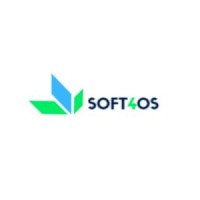
10 Ways to Maximize LMS ROI — Green LMS LMS + LXP


According
to Investopedia, ROI can be defined as a financial metric commonly used to
measure the likelihood of getting a return on investment. A ratio compares the
profit or loss of an investment with its cost. It is just as useful for
assessing the potential return of a single investment as it is for comparing
the returns of different investments. Return on investment (ROI) is a crucial
metric for any business. The same goes for LMS ROI.
ROI
is important for measuring business success over time and takes the guesswork
out of future decisions.
Why
calculate the ROI of training?
Most
expenses in a business have the same goal: to increase revenue. For example,
spending on advertising provides insight into your product, and investing in
employee benefits attracts a more engaged workforce. And spending on training
ensures your employees get the necessary training that will help them improve
business performance.
Training
is like any other investment; you need to collect data to see if it works.
Training gives your employees more information and skills to do their jobs
better.
A
negative performance means that the training is not having the desired effect.
Maybe it was too expensive. Alternatively, it added an extra layer of tasks
your overworked employees just don't have time for. Here read more about LMS for customer training.

Why
an LMS?
Employee
training is often viewed as a "cost center". One reason is the
upfront and ongoing costs of "traditional" learning systems. The
other reason is the lack of support and training for such systems. However,
studies show that organizations with the right learning platform, with the
right implementation, can ultimately save thousands of dollars in IT costs and
achieve higher employee performance.
Investing
in a new LMS can seem like a daunting task for any business, as it requires
selecting an LMS from several vendors, evaluating several features, customizing
the solution, and migrating data to the LMS.
Clever
use of LMS features can be the difference between carefully investing resources
and spending an L&D budget in the dark.
That's
why having a robust ROI measurement system in place is essential for analyzing
whether employee training is so crucial.
The
ROI of a New Learning Management System (LMS)
ROI
stands for return on investment. An economic indicator shows the impact of your
training program in economic terms. With ROI, you bypass lower-level
assessments of training impact, such as employee satisfaction, and jump
straight to the conclusion: For what we spent, what did we get out of this
training?
The
ROI of an LMS is a purely economic measure. Indicate the benefits of the
training program using an LMS, about costs. Benefits include any economic
improvements to your company's operations that result from your training, such
as increased profits or cost savings.
Here
are some factors to consider:
·
The number of
employees enrolled in the LMS?
·
What is the average
cost of each course?
·
Do you pay external
instructors for their services?
·
What is the cost of
travel and accommodation for these instructors?
·
What is your annual
budget for an LMS?

Let's
look at some areas where an LMS can help you optimize ROI:
Frontline
Income Benefits
An
LMS helps train your staff efficiently, improving skills. By providing
effective training through an LMS, you can improve employee skills and
therefore business performance. This will scale up across the organization and
lead to better revenue.
Savings
on infrastructure costs
Most
LMS solutions are hosted in the cloud, resulting in lower IT support and
maintenance investments. However, a few years ago, LMS solutions were hosted
in-house, resulting in large investments in maintenance and IT infrastructure.
Unless
your organization has a large IT team, cloud-hosted LMS providers that offer
unlimited, ongoing support have proven to be less expensive than ticket or time
formats. Managed hosting solutions support eLearning development alongside
technical solutions, saving man-hours and freeing up IT and administrative
teams to work on other important projects.
Data
security
With
a self-hosted LMS, organizations can maintain absolute control over their data.
However, depending on the level of technical expertise required, this can
involve a significant investment, such as installation, configuration, hardware
customization, and personnel training costs.
Using
a cloud-hosted LMS, an organization can leverage third-party security, such as
AWS encryption. While it is just as (if not more) secure than in-house data
security software, the cost is likely to be significantly lower.
Reduce
administrative costs of training
For
many organizations, that still train their staff in-house, the costs add up
quickly. The expense of printing physical training materials, distributing
them, and salaries for instructors to facilitate employee training leads to a
rapid increase in costs.
To
reduce these repetitive costs, you need an LMS that allows your company to
create courses, organize and replicate training content, quickly deliver it to
stakeholders, and host virtual instructor-led training sessions and recordings
that can be saved and replayed, Saved, and Displayed during another training
program.
Reduce
travel costs
When
you have a largely or entirely remote workforce or globally distributed
offices, the on-demand training options available through an LMS are easier and
less expensive to maintain. With a learning management system, you reduce the
cost of airfare, hotels, meals, and other expenditure, and the final savings in
cost are substantial.
Minimize
lost productivity
Lost
productivity is the indirect cost that an employer incurs when the employee is
in training. With online training delivered through an LMS for the convenience
of the student, employees can meet their training needs from home, on their way
to a store, or even in the office cafeteria. Making eLearning courses available
on a mobile device, their work laptop, home office desktop, or where people can
add relevant training content extends and optimizes employee time and
productivity.

Benefits
of collaborative learning
In
most companies, younger employees are constantly looking to permanent employees
for advice or feedback. Social learning is a very important source of how we
cement new information. An LMS that includes collaborative and social features
such as chat, group feeds, and discussion forums allows your company's subject
matter experts to contribute their knowledge to multiple audiences
simultaneously and ensures that employees learn from their peers without the
need for face-to-face meetings.
Plus,
instead of a random Google search, your employees will learn from knowledgeable
and trusted sources who are familiar with your brand. Click here to read more about LMS for Higher Education.
Reduce
attrition
Employee
turnover cannot be eliminated. However, losing top talent is not only very
costly, but it also leads to a loss of productivity until a replacement is
found and fully strengthened. And this is only the beginning. But you can
reduce it by providing an engaging onboarding experience and a workplace where
employees feel valued and want to stay. Corporate training initiatives using an
LMS can help employees feel successful and confirm that their career is taking
a definitive path at your organization.
Time
for high-level strategy
A
modern LMS can automate the creation of personalized learning paths, track and
monitor employee progress, access real-time training KPIs and reports, send
notification reminders and enroll users, and much more. Automating most LMS
management tasks not only reduces support costs but also frees up your HR staff
to focus on a high-level strategy.
Analytics
and increased productivity
Sales
training, onboarding, regulatory compliance, and customer or partner training
using an LMS can deliver courses that help employees achieve peak productivity
more efficiently and quickly. Organizations that invest in quality learning
using an LMS can leverage the talent of their employees with courses that
facilitate student success.
One
of the main advantages of an LMS is that it can collect extremely detailed data
about the student to provide a complete and accurate overview of the
effectiveness of your eLearning. Student data can also be compared from year to
year, helping you ensure that iterations of training programs become more and
more effective. Additionally, employee performance can be compared
year-over-year to gauge whether your workforce is also becoming more productive.
There
is no doubt that effective training can be an extremely important variable in
the growth of an organization. But it's also important to know if you're
getting an optimal return on your investment. As with all initiatives, results
matter. That said, there is no one-size-fits-all approach to measuring the ROI
of your training program. There are several qualitative and quantitative
factors to consider, such as the training objective, employee skill level,
employee feedback, training commitment, and performance results. It is also
imperative to ensure that training is sustainable and long-lasting. Training
should be a continuous process in which employees are updated and retrained,
improving company performance.
Whether
you want to understand how to improve the current ROI of your employee training
program or implement a new LMS with engaging training, we have the experience
to help you achieve your goals.
Why
choose Green LMS?
Green
LMS helps you deliver engaging enterprise training with a robust Learning Management
System. You can easily create interactive eLearning content with Green LMS’s
built-in course authoring tool. Increase your learner’s learning retention and
engagement with gamification, social learning, and mobile learning. You can
track your training course performance and learner’s progress using pre-built
reports and an interactive dashboard. Host your online training through Green
LMS’s Zoom Integration. To know more about Green LMS, Schedule a Demo today.
Post Your Ad Here





Comments